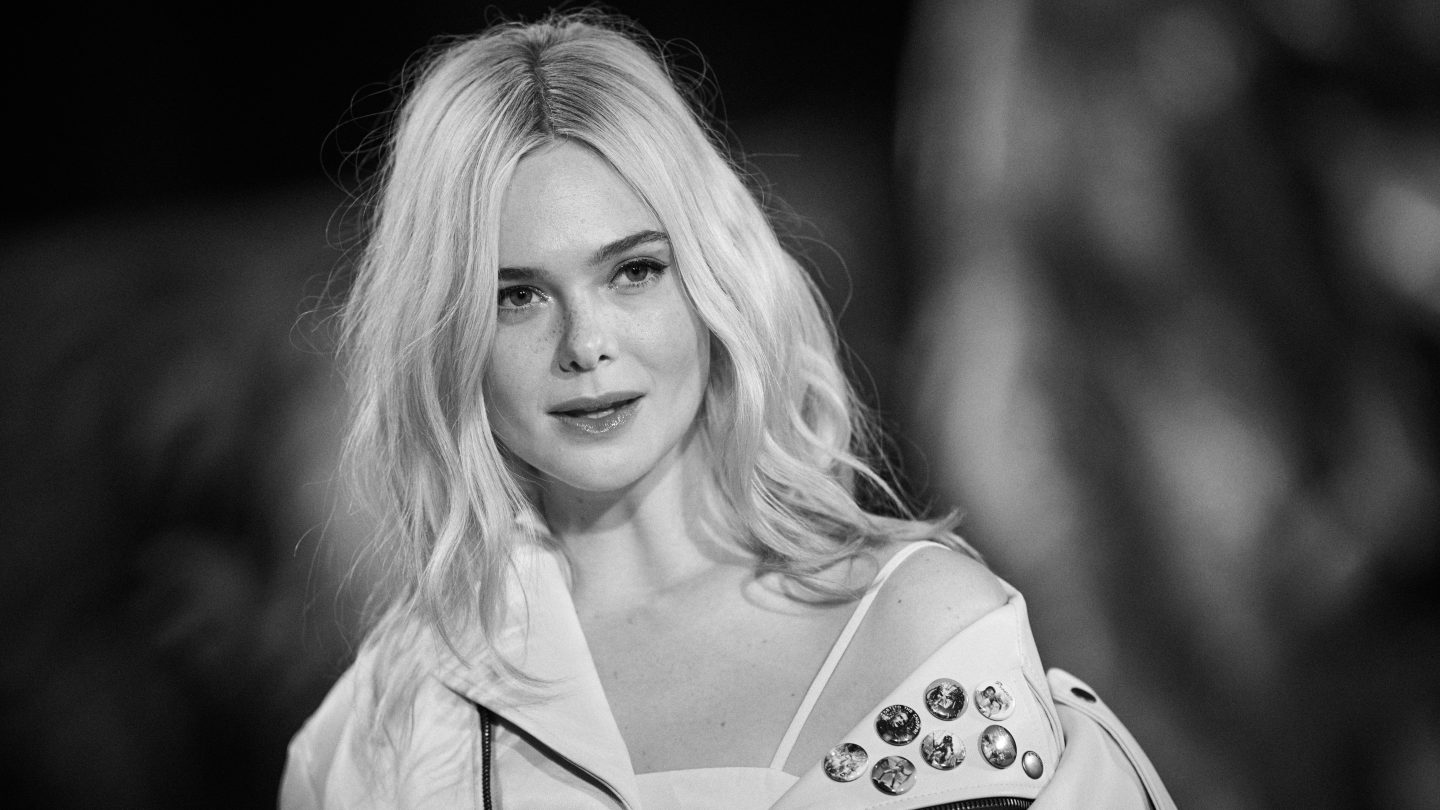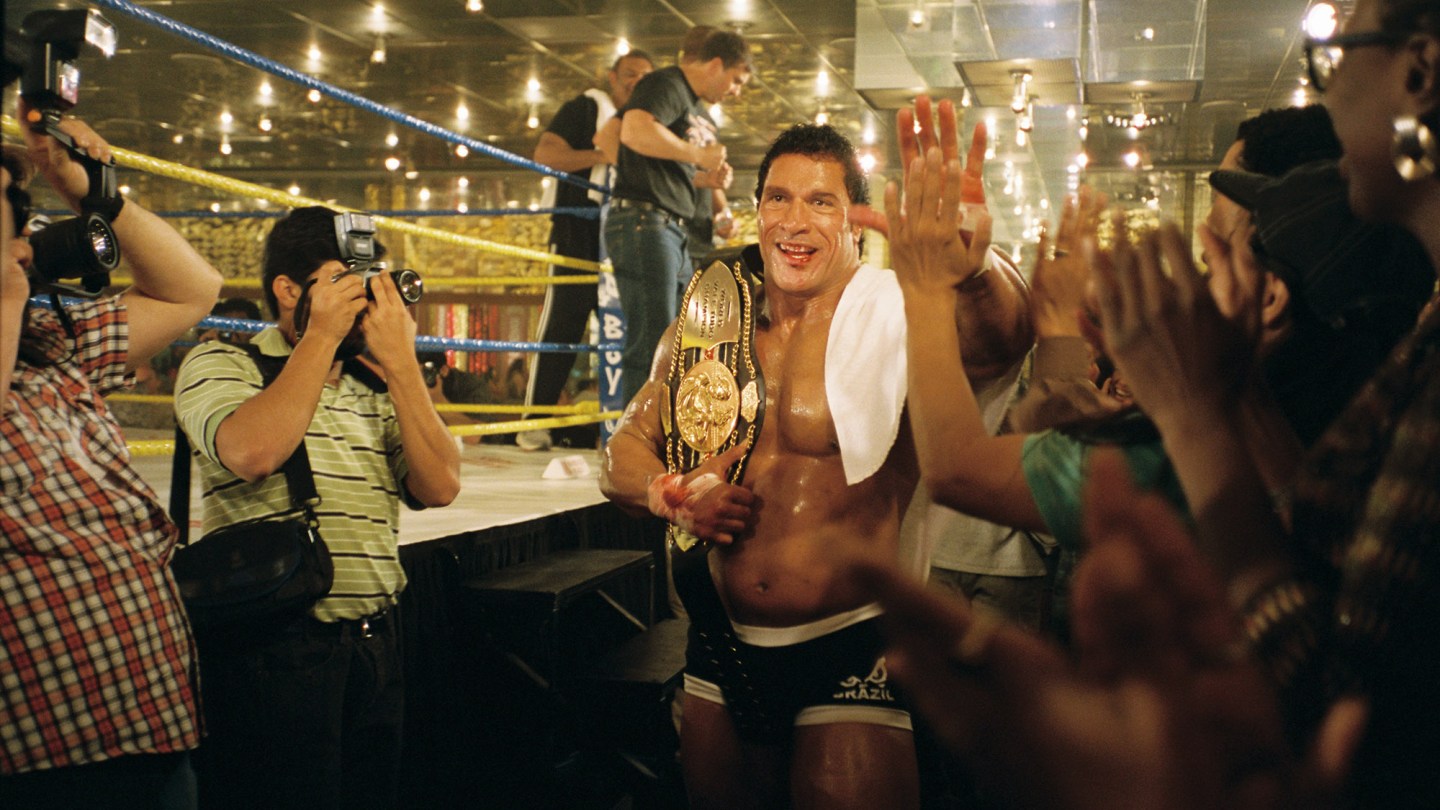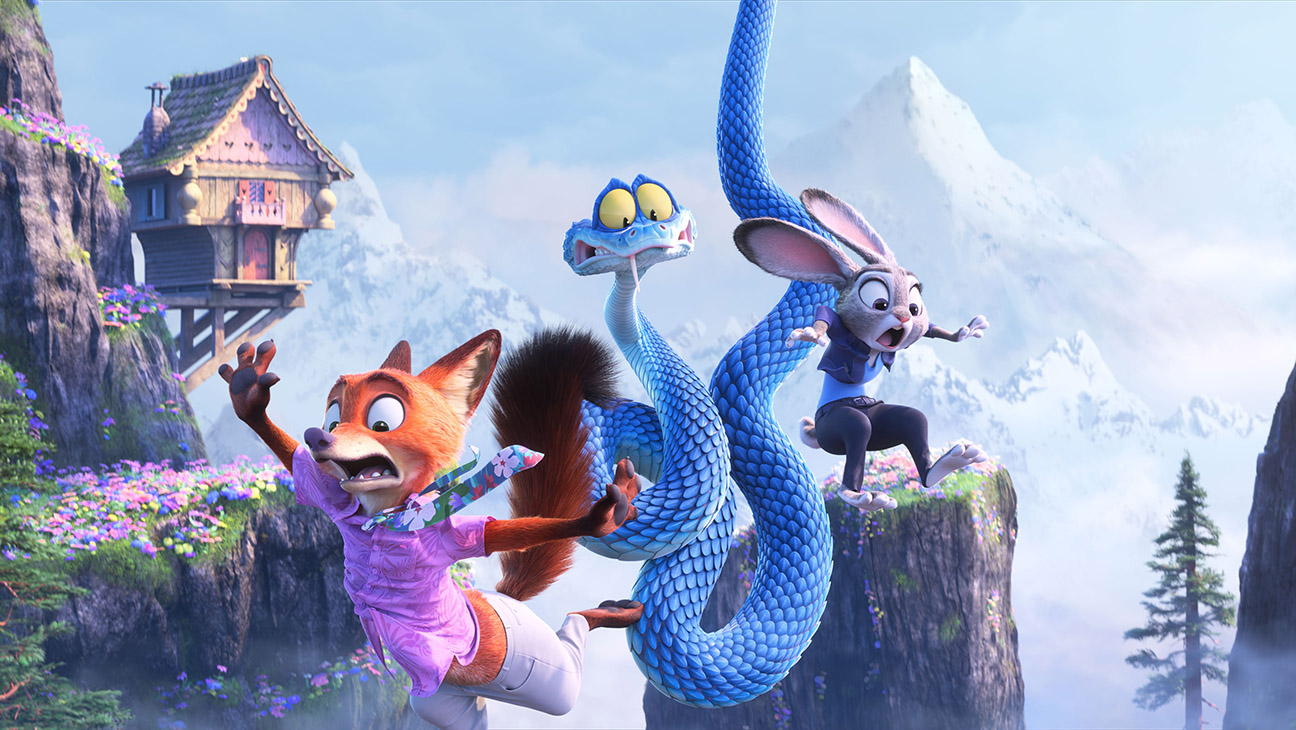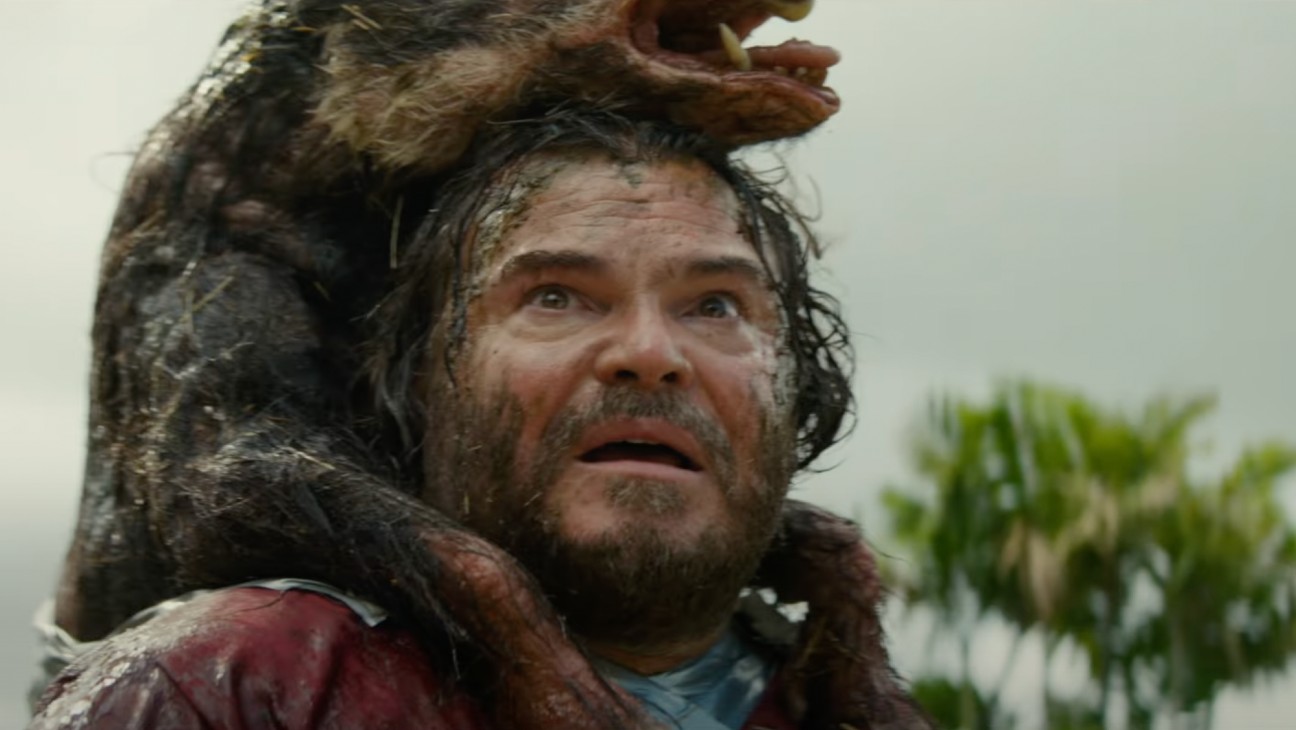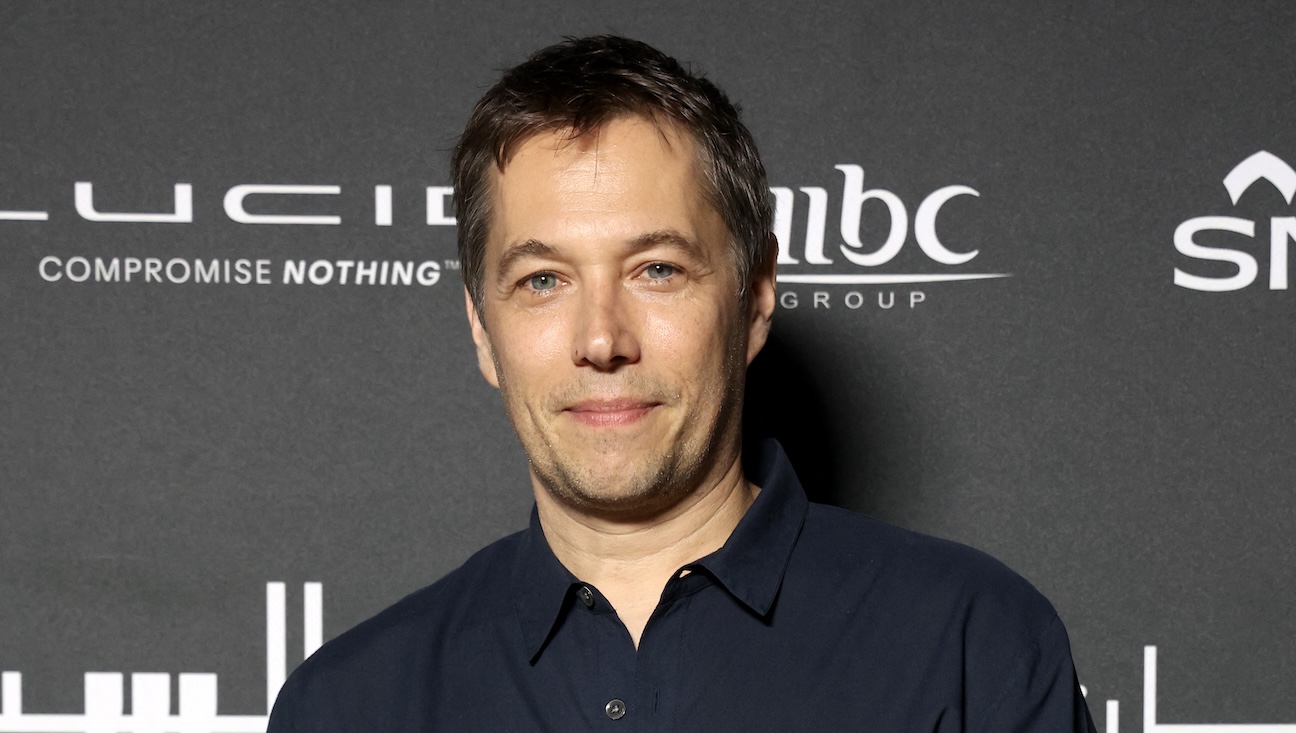These days, few actors have the kind of weekend at the box office that Elle Fanning is coming off of. The Golden Globe nominee toplined the new tentpole Predator: Badlands, which outperformed tracking expectations to gross $40 million domestically and set a record for the Predator franchise, while she also played a key supporting role in Joachim Trier’s Norwegian Oscar contender Sentimental Value, a richly lifelike drama that has already won major prizes out of Cannes and various regional festivals. Neon opened Sentimental Value on just four screens starting Friday, but the film took in $200,000, marking one of the best platform-release openings of the year.
Actors don’t have any control over when their movies are released, but for Fanning, the convergence feels only appropriate. She shot these two films back to back, and their drastic differences in scale and appeal — the only things they have in common, really, are that critics really like them and that Fanning does terrific work in both — perfectly represent Fanning’s goals as an actor. “I don’t want to be put into a box,” she tells The Hollywood Reporter. “I want to try all genres, to try it all. I want to be challenged.”
In Sentimental Value, Fanning digs deep as a famous American actress who’s been cast by a revered Norwegian director (Stellan Skarsgård) in a drama either inspired by his late wife or, maybe, his estranged daughter (Renate Reinsve). In Badlands, meanwhile, she’s on double duty, portraying two synthetics — one the ever-curious companion to our young predator Dek (Dimitrius Schuster-Koloamatangi), the other her antagonistic sister. As Fanning basks in the success of the two — with a good shot at earning her first Oscar nomination for one of them — she admits she’s thinking back to the task of playing dual roles on a single project. “I’m in New York right now and I’m trying to clone myself to do press at the same time for both,” she says with a laugh. “But yes, it’s very exciting.”
Is it safe to say this feels like a big year for you?
I think we can say that. (Laughs) You know what? From when I was a young girl, I knew that 2025 would be an exciting year. I love five, the number. (Laughs) I don’t know, I always felt that way. I am a very instinctual person. I feel so happy. When you start working at two years old, you’re going to feel shifts and changes constantly in those years. That’s just a given. And so there have been moments where I have felt the growth physically, or felt a new chapter beginning. Somewhere was that. Super 8 was certainly that. I have The Great to thank for a lot of things — that’s the character that I’m the most close to, where I got to experiment and really push myself, and I felt that shift. Now I’m feeling another shift. It’s a new chapter.
Seeing both Predator and Sentimental Value thrive in theaters last weekend in their own ways, I’m curious if there were any lessons for you in how and why they worked. I know you’re getting deeper into producing and scouting your own material, and this is a year where I feel like we’re hearing a good deal of panic about movies succeeding in theaters.
I’ve been thinking about it. There’s a throughline with both to me. Both directors and the people around them — the producers who make the films happen — are very unwavering in their vision. Audiences are not looking for something that’s been formulated or calculated for them. They don’t want a director to say, “We’re going to do this because audiences like this, and in this percentage of people, this works.” There’s no mathematical equation for art or for films. Dan Trachtenberg is a fanboy himself. He was at Comic-Con and in Hall H growing up, so he had this big swing of an idea that he was quite unwavering with, and he also had people to back him that allowed him to do it, because also it might not have been accepted. It’s an unprecedented thing for the franchise to make the Predator the protagonist, and to have the synths involved, and a robot backpack. (Laughs.)
And Sentimental Value is such an honest, personal film. It’s unwavering in that it’s just truthful. It’s his vision. Only he could tell it. When you watch films, for me, the more specific and detailed you get — the less generalized it feels — the more universally it affects people. The film doesn’t heal. It’s left in an open-ended way. It doesn’t tie it up in a bow. There’s progress and there’s some understanding there. It doesn’t have the movie gloss of, “Everything’s perfect!” That’s not life.
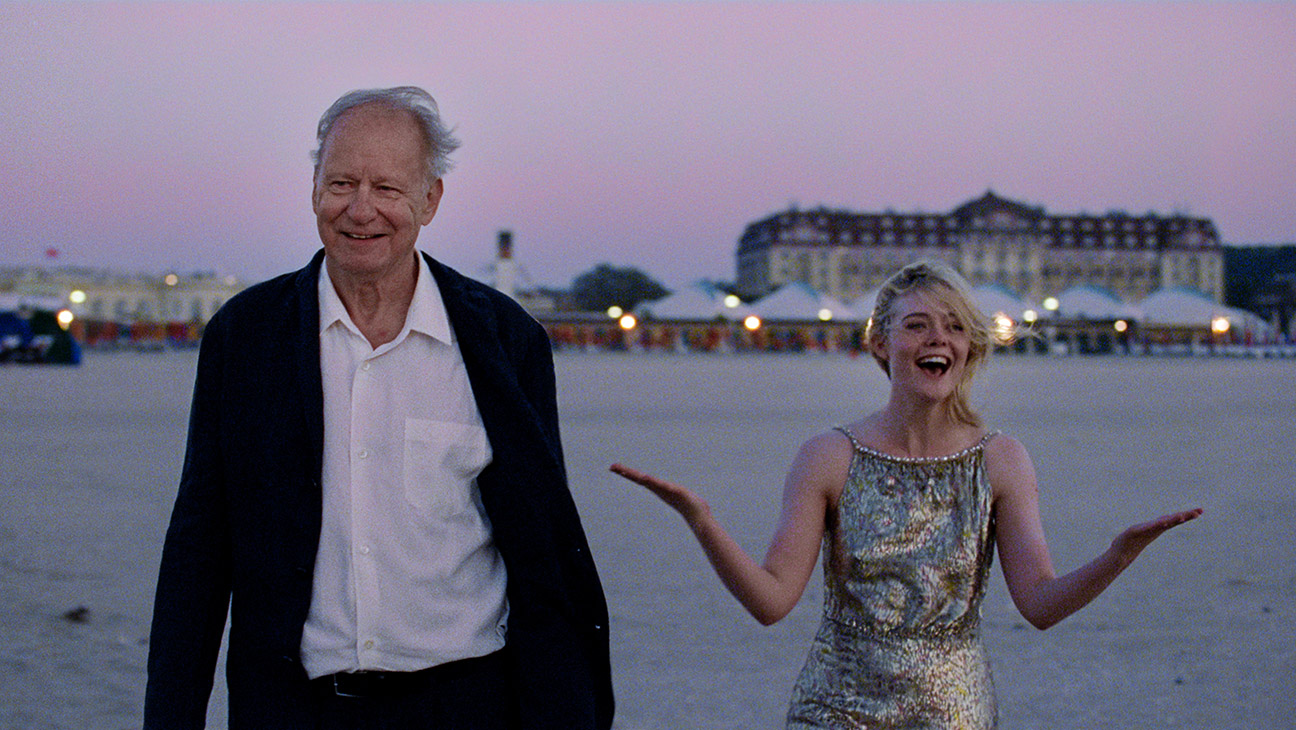
You made Badlands and Sentimental Value back to back, right?
Yes. I had finished A Complete Unknown, and I was still in New York. Dan called me and I had talked to Dan and read that script and was very excited by his new take with Badlands and playing two synths. I talked to him on Zoom while I was there and we agreed to do it, and he told me it was filming pretty soon in New Zealand. Just when I was getting ready to go off there, my agents called me and they said, “Joachim Trier has a film that he’s thinking about you for.”
I was like, “Oh gosh, I really want to do this too.” So I got on the Zoom with him and he was in Oslo, and from that conversation, we were really on the same page with how we saw Rachel. I felt like he could see me even through the computer screen. We got close over that conversation and he said the rehearsal process is very important to him. He was like, “I really want you to be able to come to Oslo and work with each actor and me, like that’s kind of how I do it.” He records all the rehearsals and then molds the character to you a bit; he’ll cut lines or change aspects of the character.
It got into the scheduling and everything where it’s like, well, both movies are happening at the same time, so how are we going to make this work? The final conclusion was I went to Oslo very soon after the call with Joachim, and we had a rehearsal week with everyone. I might’ve come home for a sec, but then I went to New Zealand for four months to film. Then I had to fly from New Zealand the day I wrapped. I woke up that morning early, and got on a flight to France — then drove to Deauville, did a fitting so I could try on Rachel’s [festival] premiere dress. We tried on a thousand dresses. We shot that and then just we were off to Oslo.
Wow. How did it feel jumping between roles so quickly?
It was wild. But honestly, I feel like it informs Rachel, coming off of a big action film. She’s a mega star in the sense of, she’s probably done a lot of YA films, been in a lot of franchises, and so oddly enough it all worked together to help.
Coming off of the experience of A Complete Unknown, Sentimental Value is now in the awards conversation. How are you keeping it in perspective?
Last year we didn’t do any festivals or anything; it came out on Christmas Day. We did Q&As and stuff, but it was just a little bit later because —
You won the National Board of Review award before the movie even premiered, right?
I think so! I must have. I was like, “What?” But yes, with Sentimental Value, it’s not a small film to me, because I’m like, “Joachim Trier — the best director in the world.” To me it’s huge. But it’s a foreign film with subtitles. I like to say I’m in two foreign films this year: Predator is completely subtitled. (Laughs.) But you want to support and get as many people to see it as possible. So for me, this comes with it. Why wouldn’t you try to? The film affects people, and I think it should be seen.
You are so good in Predator, and the movie gives you space to give that unique performance. But some of us see the Predator title and know it’s probably not going to be taken as seriously in that kind of awards context, given its genre. What do you make of that, given you have that in theaters right alongside a very strong contender like Sentimental Value?
I mean, even with Demi [Moore] last year with The Substance, that was so incredibly deserved for her to get acknowledged for that film. Everything Everywhere All at Once, that was so bold and new. So we are broadening it and I think that that’s important. Or I feel like we are pushing towards opening it up a little bit more. Just because it’s genre, I don’t think that people should be biased. I don’t agree with that: a film is a film! It’s important to cultivate creativity and young directors with their ideas, and to have that be noticed. There shouldn’t be a mathematical equation for what is the proper thing to do. I hope it continues to change.
For me, when I go into roles, I don’t look at it differently. I am playing two characters in Predator, and I saw it as a real acting challenge. Then you put on top of it the physical challenge, it’s almost harder. I’m strapped to him back to back. We’re in wires and harnesses — but then also you have to deliver the comedic timing, the rhythm. Demetrius is incredible. He was there every day. I mean, just because they covered his face, you can see the emotion through that. That’s because of him, and that’s pretty astonishing.
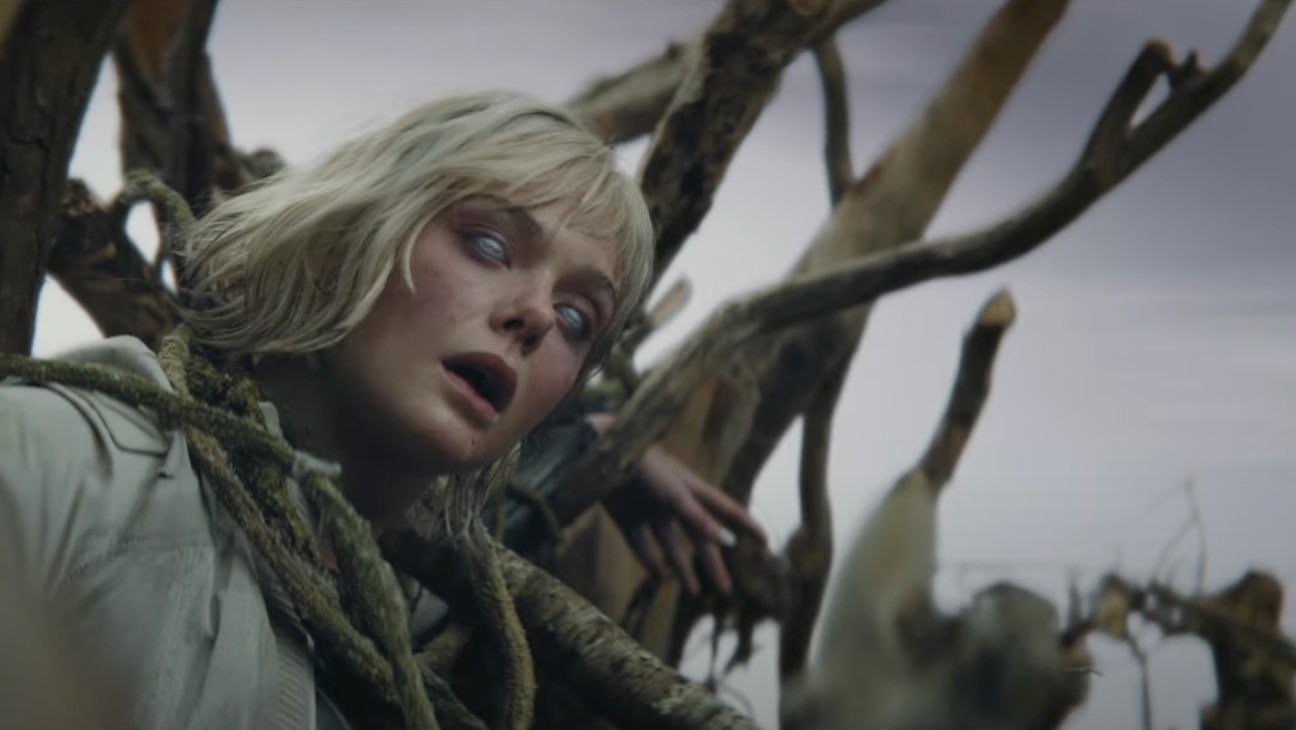
I spoke with your Sentimental Value costars at an event last week while, I assume, you were deep into Predator promotion. They talked a lot about the vulnerability that comes with making a Joachim Trier movie, and how personal you have to get as an actor. Did it feel jarring to go there so soon after making a tentpole movie?
You have to clear your mind and let go of, “Okay, I have to switch my brain into another character now.” In some ways, I almost felt more raw, more open to sinking my teeth into something else. What Joachim requires of you, it’s a lot of emotion and honesty. He really creates this safe environment for you to be vulnerable. He’s not afraid of the silences and of allowing his actors to just truly stare into each other’s eyes for a long time. That does something to you, especially when you’re looking into Stellan Skarsgård’s eyes, which are so soulful.
Rachel is not me, but you can’t help but go to personal places and reflect on yourself on sets. There are enough similarities in the feelings that she is going through in the film that I’ve certainly felt in my career, in my life. We find her in a place where she’s longing or searching. She feels a bit lost, and she’s struggling with her own depression in a way. Those are feelings that I can relate to, that sense of wanting to find your purpose, because this career as an actor — you have to be given opportunities to showcase your talent. You want to be given those meaty roles.
What kind of stuff came up as you were digging in and going to those personal places?
There are some things that I won’t share, but Joachim knows those things. After one scene — and this has nothing to do with movie stuff, but just in my life — I actually couldn’t figure out what was bubbling up. When I woke up that morning, I was crying in the car on the way to set. It was bubbling up inside me, and I’m like, “What is going on?” You don’t realize. Joachim knew, he’s so telepathic — he communicates telepathically, and he knew that I was maybe nervous to do that scene, or it held a lot of weight for me. He knew he needed to come to my trailer. I just think he felt my energy, and we talked like, “We’re going to do this. We’re going to have time to do this. We’re not going to rush.”
I wish I could go into things more, but her struggling with feeling like she doesn’t have power over her career — at times, that’s something I felt like in the past. Now I’m lucky I get to produce things and find things myself, but when you’re younger, it’s just the roles that you get. You have to audition and that’s it. And acting can be a lonely place too. It can be isolating.
And you’ve been all over the place. You just finished shooting the new Hunger Games movie. What are you filming next?
Yeah, I finished Hunger Games, which was so fun. I really got the good costumes, and got to show a big personality. Then I’m doing The Nightingale with Dakota [Fanning].
It’s happening!
It’s happening! How many times have you reported this? I’m so sorry. (Laughs.)
Over my many lives in media, it’s been quite the saga. But I’m so glad. When do you shoot?
It’s in the spring of next year. Yeah. I mean, it’s happening.
Given that it has taken a long time and you are entering this new chapter, is there anything to making it now with Dakota, versus when you’d originally planned doing it? How does it feel to be jumping into it together at this stage?
I do, yes. Dakota and I have talked about it. We always think everything happens for a reason. I truly believe that in this sense. We’ve grown, we’ve gotten older. I think it’s important to do it right now. When we were younger, people would ask us a lot to do films together — like, when we were kids — and we kind of got close to it and then it didn’t work out. There was always a reason why they didn’t work out, but I think it was nice that we could forge our own paths and have our separate careers and discover ourselves as ourselves when we were younger, and not muddle that. Now that we’re older, we really do want to mesh it all and experience that. We’ve never even read lines together. (Laughs.) You grow with each experience, but this is the perfect time. And finally, yeah, we have to get over it and treat each other as fellow actors.
That’s right. You’re going to have to get through a scene without laughing.
Oh, yes. Laughing or being like, “Don’t do that!”

